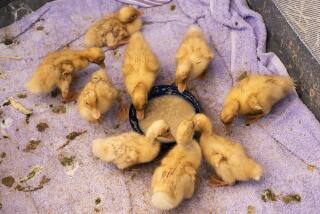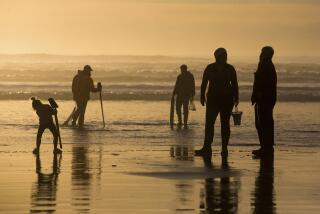Judge Refuses to Stop Poisoning of Cape Cod Gulls
- Share via
CHATHAM, Mass. — Federal officials are preparing to poison as many as 7,500 sea gulls at a Cape Cod wildlife refuge, prompting protests from residents and environmental groups who charge that officials should instead be protecting bird habitats now invaded by off-road vehicles.
A last-minute bid by the Humane Society of the United States to halt the poisonings failed Thursday night when a federal judge denied the group’s request for a temporary restraining order.
Susan Hagood, a spokeswoman for the Humane Society, said the group planned to decide this morning whether to appeal the decision. But she said the society was powerless to stop the initial round of poisonings. “We can do nothing legally to help those gulls at this point,” she said.
The U.S. Fish and Wildlife Service said it hopes to today begin placing poison-soaked bread cubes in the nests of herring and great black-backed gulls on the northern tip of South Monomoy Island, part of the 2,800-acre Monomoy National Wildlife Refuge.
The program is designed to create a 350-acre gull-free nesting area for rarer species of birds such as threatened piping plovers, terns and spotted sandpipers.
Refuge officials say the numbers of those birds on the refuge have declined severely in the last few decades because of the overabundance of the large gulls, which occupy most available nesting areas and prey on the eggs and chicks of the smaller birds.
Federal officials say eradicating the gulls falls within their mission to conserve migratory birds.
More to Read
Sign up for Essential California
The most important California stories and recommendations in your inbox every morning.
You may occasionally receive promotional content from the Los Angeles Times.













